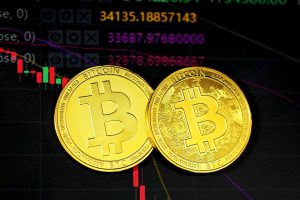Forex trading is a lucrative career path that has attracted many individuals who want to make a fortune from trading currencies. However, to become an institutional forex trader, one needs to be well-versed in the field and have the necessary skills and qualifications. In this article, we will provide an in-depth guide on how to become an institutional forex trader.
What is Forex Trading?
Forex trading is the act of buying and selling currencies with the aim of making a profit. The foreign exchange market is the largest financial market in the world, with a daily turnover of over $5 trillion. Forex trading involves speculating on the value of one currency against another. For example, if an individual expects the value of the Euro to rise against the US dollar, they will buy Euros and sell US dollars.
What is an Institutional Forex Trader?
An institutional forex trader is a professional trader who trades forex on behalf of a financial institution such as a bank, hedge fund, or investment firm. Institutional traders typically have access to larger trading accounts and have access to advanced trading tools and technology. They trade on behalf of their clients, and their goal is to generate profits for their institution.
Steps to Becoming an Institutional Forex Trader
1. Education and Training
The first step to becoming an institutional forex trader is to get the necessary education and training. A degree in finance, economics, or mathematics can be helpful, but it is not mandatory. However, it is important to have a strong understanding of financial markets, economics, and trading strategies. To gain practical experience, aspiring traders can take forex trading courses, attend trading workshops, and practice trading on a demo account.
2. Gain Experience
To become an institutional forex trader, it is important to have extensive trading experience. This can be gained by trading on personal accounts or by working as a trader for a financial institution. In addition, working as an intern or assistant to an experienced trader can provide valuable insights and experience.
3. Obtain Licenses and Certifications
Institutional forex traders are required to have certain licenses and certifications to practice. For example, in the United States, traders must have a Series 7 license, which is issued by the Financial Industry Regulatory Authority (FINRA). In addition, traders must pass the Securities Industry Essentials (SIE) exam, which tests their knowledge of securities products, markets, and industry regulations.
4. Develop a Trading Strategy
Institutional forex traders must have a well-defined trading strategy that is based on a thorough analysis of market conditions, economic trends, and other factors that can affect currency values. The trading strategy should be flexible, adaptable, and based on sound risk management principles.
5. Build a Network
Building a network of contacts in the financial industry can be helpful for aspiring institutional forex traders. This can be done by attending industry events, joining professional organizations, and connecting with other traders on social media platforms.
6. Apply for Jobs
Once an individual has gained the necessary education, experience, licenses, and certifications, they can start applying for institutional forex trading jobs. Financial institutions typically require candidates to have a strong track record of trading success, excellent analytical skills, and the ability to work well under pressure.
Conclusion
Becoming an institutional forex trader requires dedication, hard work, and a strong understanding of financial markets and trading strategies. The steps outlined above can help aspiring traders to gain the necessary skills and experience to succeed in this field. With the right education, training, and experience, institutional forex trading can be a lucrative and rewarding career path.





